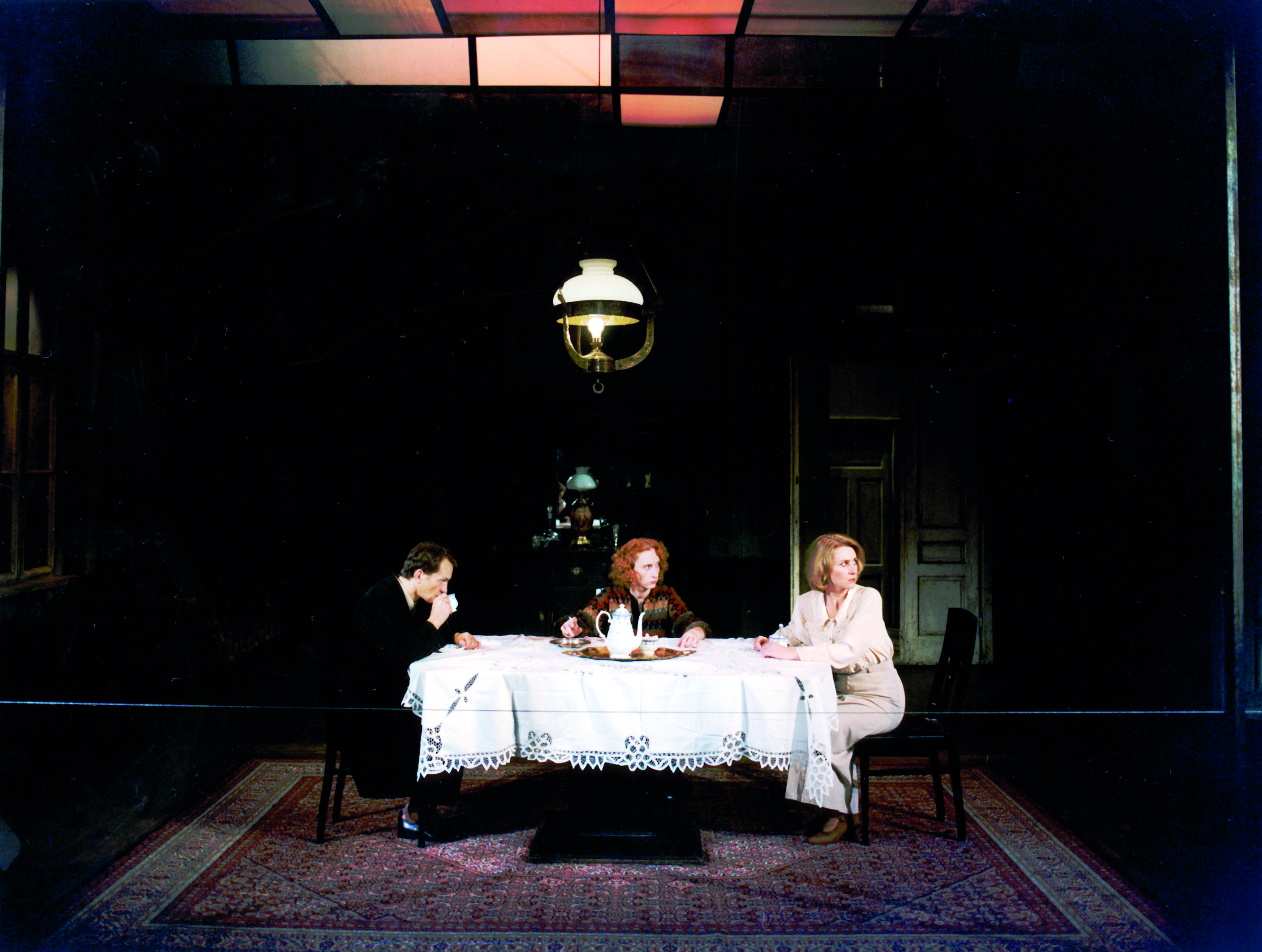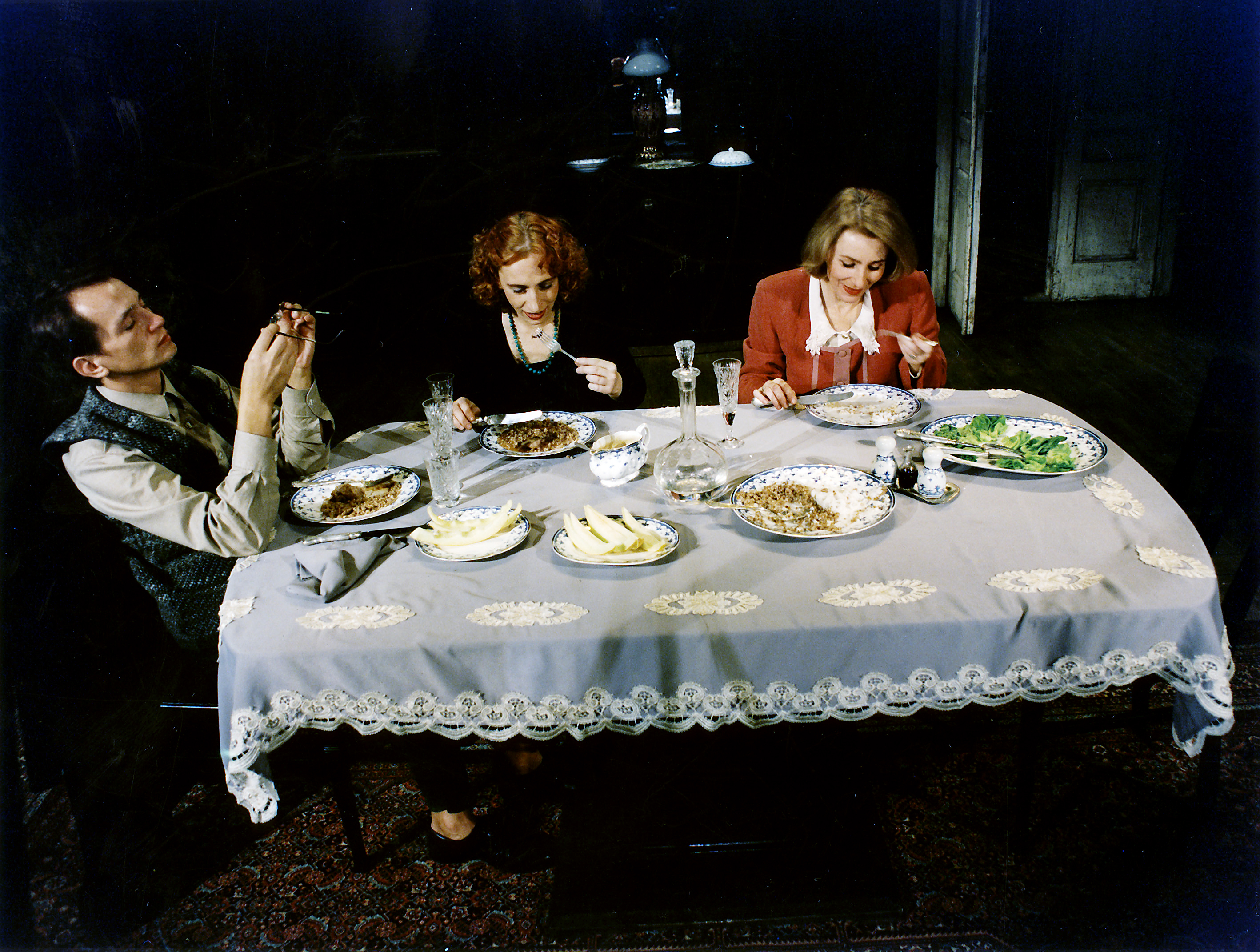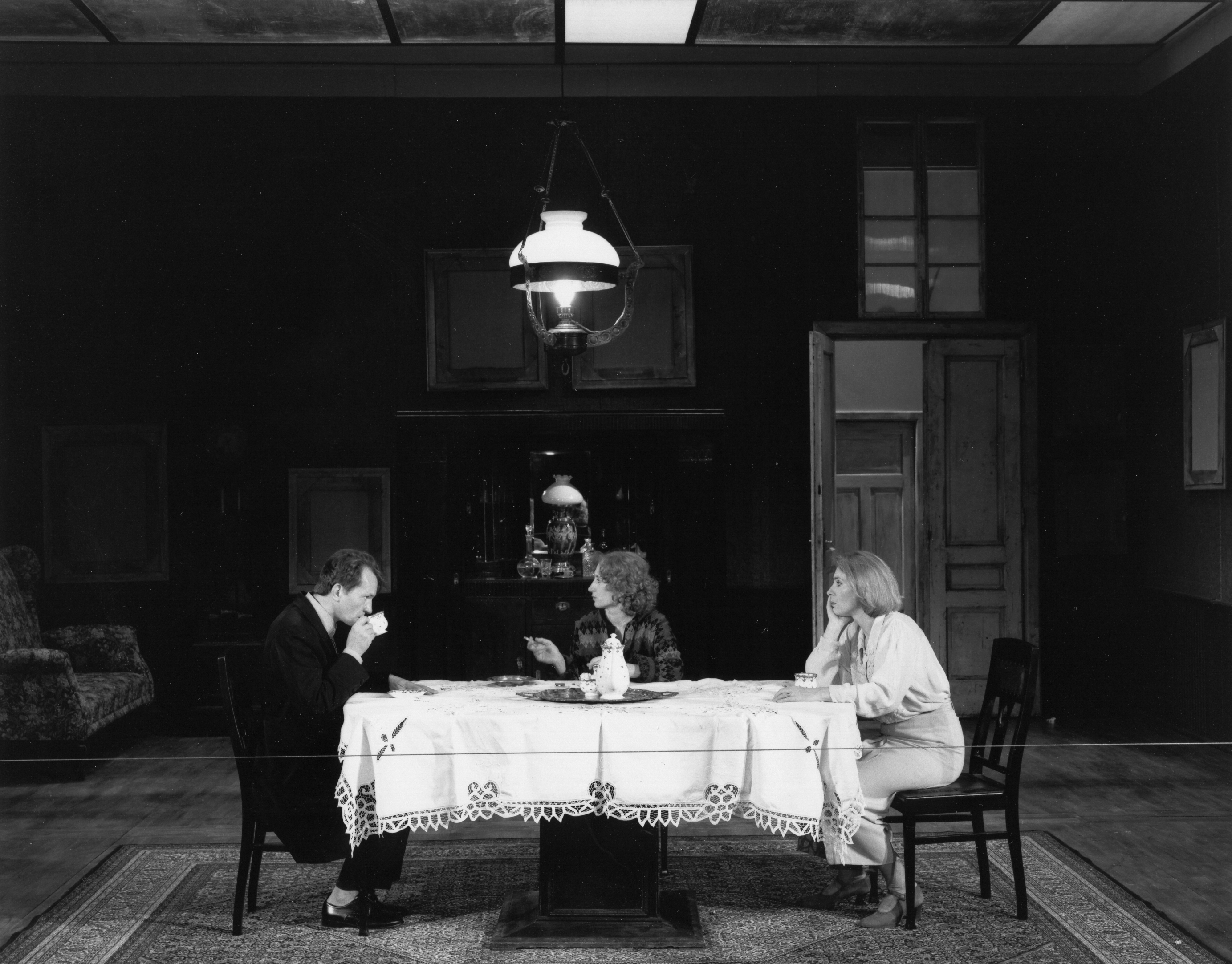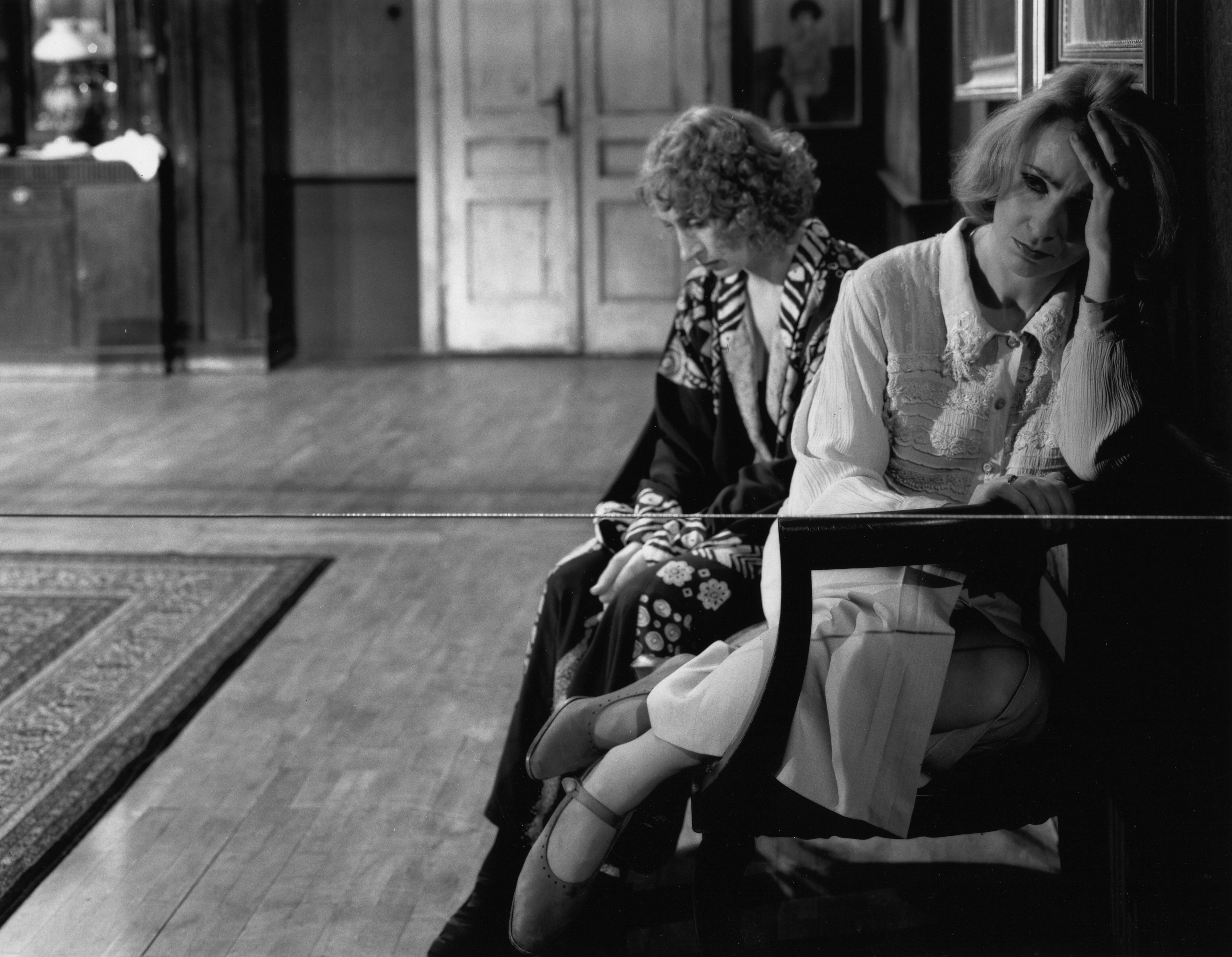Actors
Actors
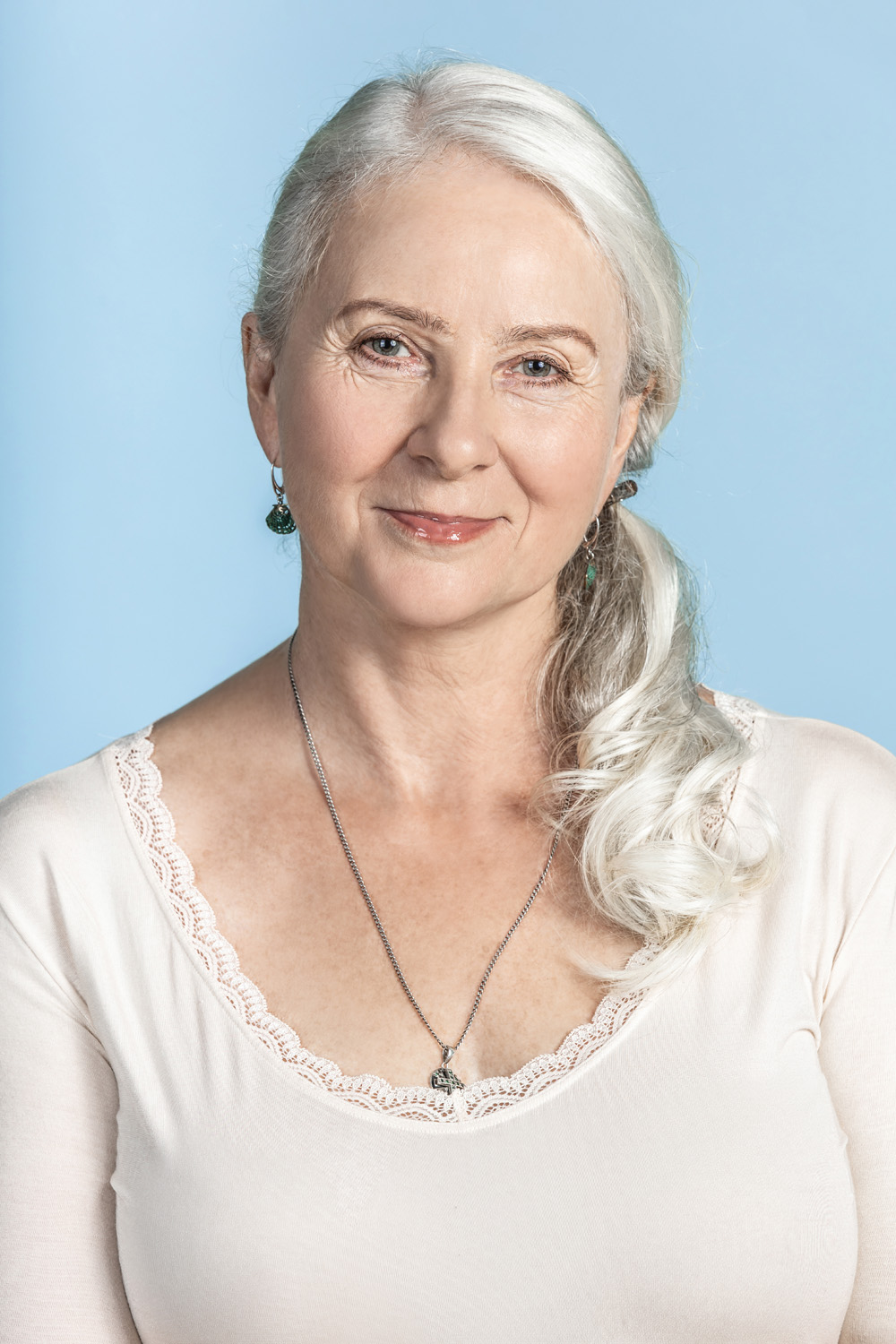
Agnieszka Mandat
Graduate of the Acting Faculty of the Ludwik Solski State Theatre School in Krakow (1976)
“She personifies the strength and mystery of theatrical incarnations, joins thespian precision and the courage to experiment, philosophical distance and feminine charm. She brings some marvellous traits to the stage—original looks, a warm voice, superb technique and the physical agility give power to her roles” (Jolanta Ciosek, Dziennik Polski)
Agnieszka Mandat is an actor, director, and professor at the Stanisław Wyspiański Academy of Theatre Arts in Krakow (former Krakow’s Theatre School). Since her graduation in 1976, she has been tied to the Stary Theatre stage, where she can still be seen in Krystian Lupa’s legendary “Siblings”: “This is a splendid role, complete, worked down to the tiniest details” (Malwina Głowacka, Teatr) and the sparkling comedy “A Minus One Element,” which she also directed. She gained her first experience on stage under the eye of leading directors of the young Polish avant-garde: Maciej Prus (Anastasia in “Crime and Punishment”), Jerzy Grzegorzewski (the Bride in “The Wedding”), Krystian Lupa (the Woman, Lady in “Iwona, Princess of Burgundy”). Her later roles—the Mother of a killed girl in Dea Loher’s “Innocence” and the Wife of the Man in the Picture in Roland Schimmelpfennig’s “Before/After” directed by Paweł Miśkiewicz, added more features to her colourful and highly nuanced acting.
Her work on stage has been rich and diverse. Meeting Andrzej Wajda gave rise to two characteristic, but quite different roles: the virtuosic performance of Mania in the stage epic “With the Passing of Years, with the Passing of Days…,” based on the script by Joanna Olczak-Ronikier, and the Messenger, reciting her monologue all in one breath in Sophocles’ “Antigone.” Rudolf Zioło entrusted her with the role of Titania in “A Midsummer Night’s Dream,” drawing out the artist’s fascinating femininity and grace, and then in Mykoła Kulisz’s “Reformer” she gave the stammering and boisterous Stakanczykowa psychological depth of identification. In the chamber staging of “Marlena”, scripted and directed by Aleksandra Domańska, she skilfully wedded a sense of humour, a formal delicacy and vocal talent. She also found her feet in the precise, analytical theatre of Jerzy Jarocki (the Psychiatrist in Sławomir Mrożek’s “The Portrait” and the Secretary in Jerzy S. Sito’s “Hear, O Israel!”).
Agnieszka Mandat is an artist who is always moving forward, courageous and exploratory. She has worked with directors of the younger generation, playing Judith in Dea Loher’s “Bluebeard—Women’s Hope” directed by Arkadiusz Tworus and the title role in Jean Baptiste Racine’s “Phaedra,” directed by Michał Zadara: “In a silver gown, flowing locks and pearls, she’s like a film star…” (Joanna Targoń, krakow.wyborcza.pl).
Agnieszka Mandat’s artistic personality was most deeply affected by working with Krystian Lupa. She has performed in the majority of his plays, making her mark on his distinct, incomparable theatre of mystery, of patient rhythm, of formal exploration. Her characters have transcended the time and space of the theatre, including Maria, torn by a conflict of reason and feelings in “The Dreamers,” a betrayed and lost Katarina in “The Brothers Karamazov,” a Maria who stirs us with her song of salvation, a humiliated Ruzena in “The Sleepwalkers—Esch, or: Anarchy,” a despairing Frieda in “The Master and Margarita,” and the unfulfilled actor Dene mothering her insane brother in “Siblings,” which has remained on the theatre playbills since 1996.
She had an enormous success in the world of cinema with her sterling lead in Agnieszka Holland’s award-winning “Spoor,” based on Olga Tokarczuk’s novel.

